
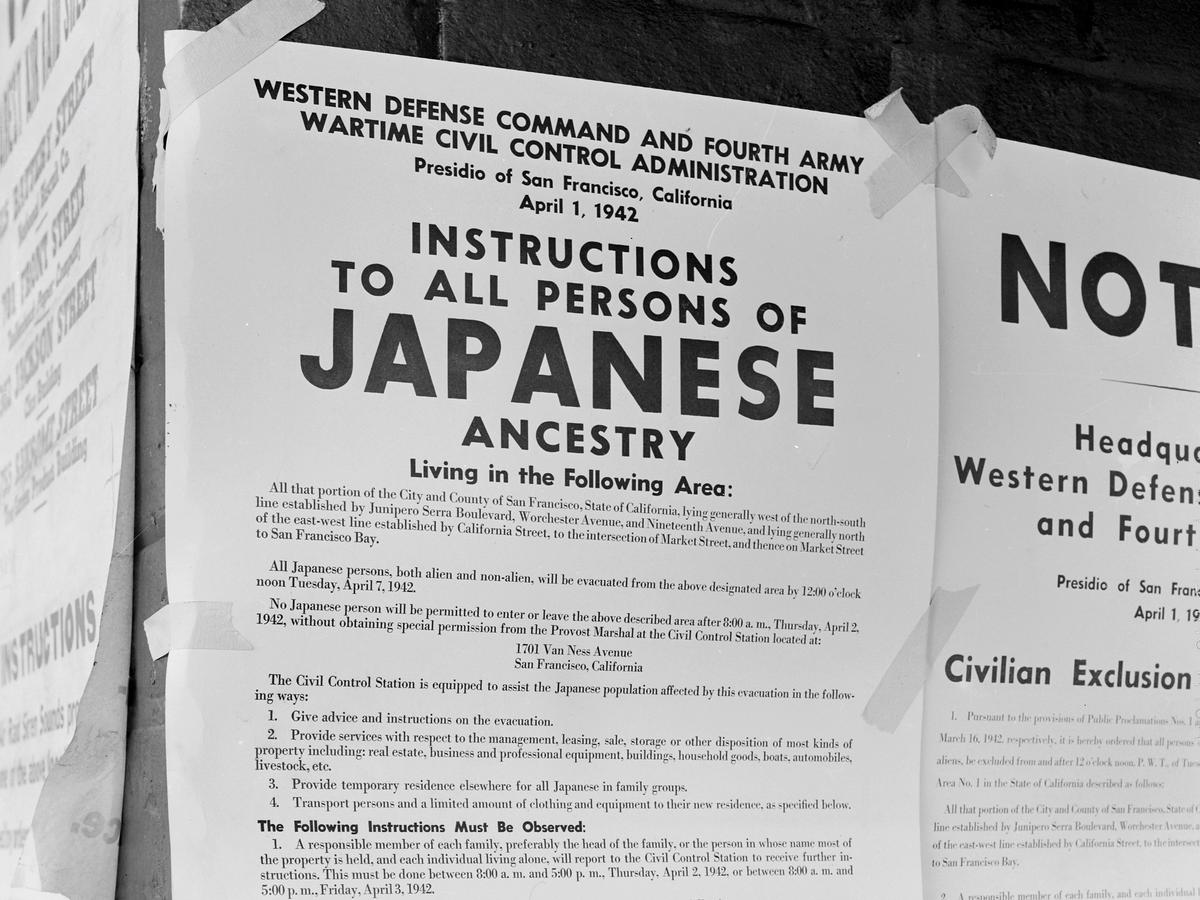
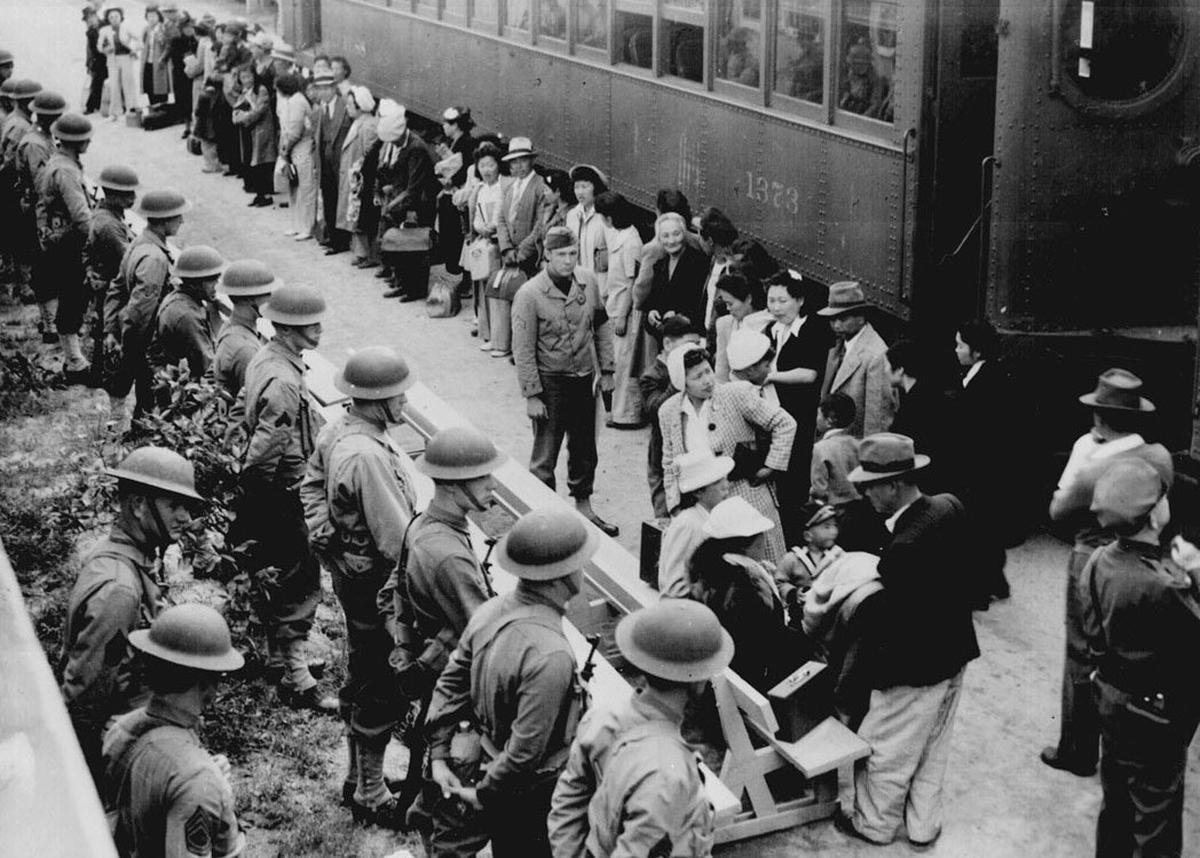
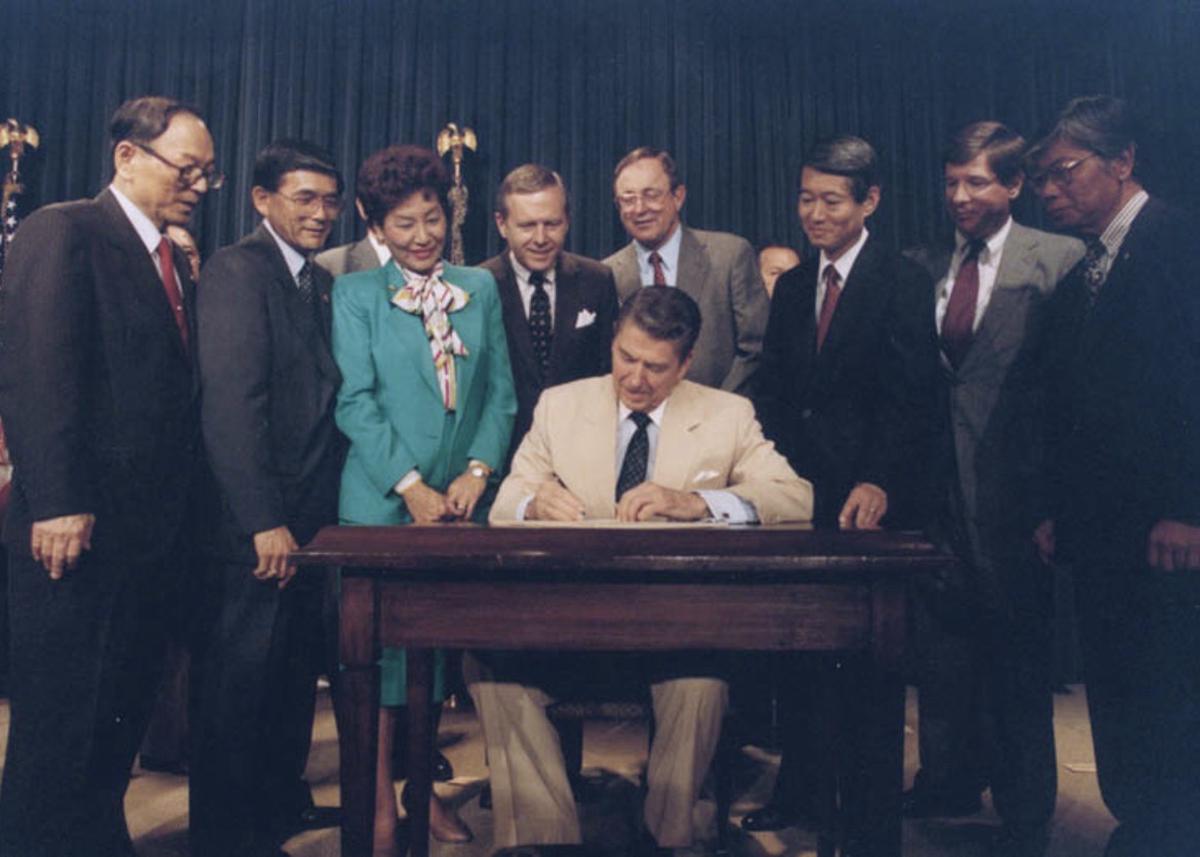

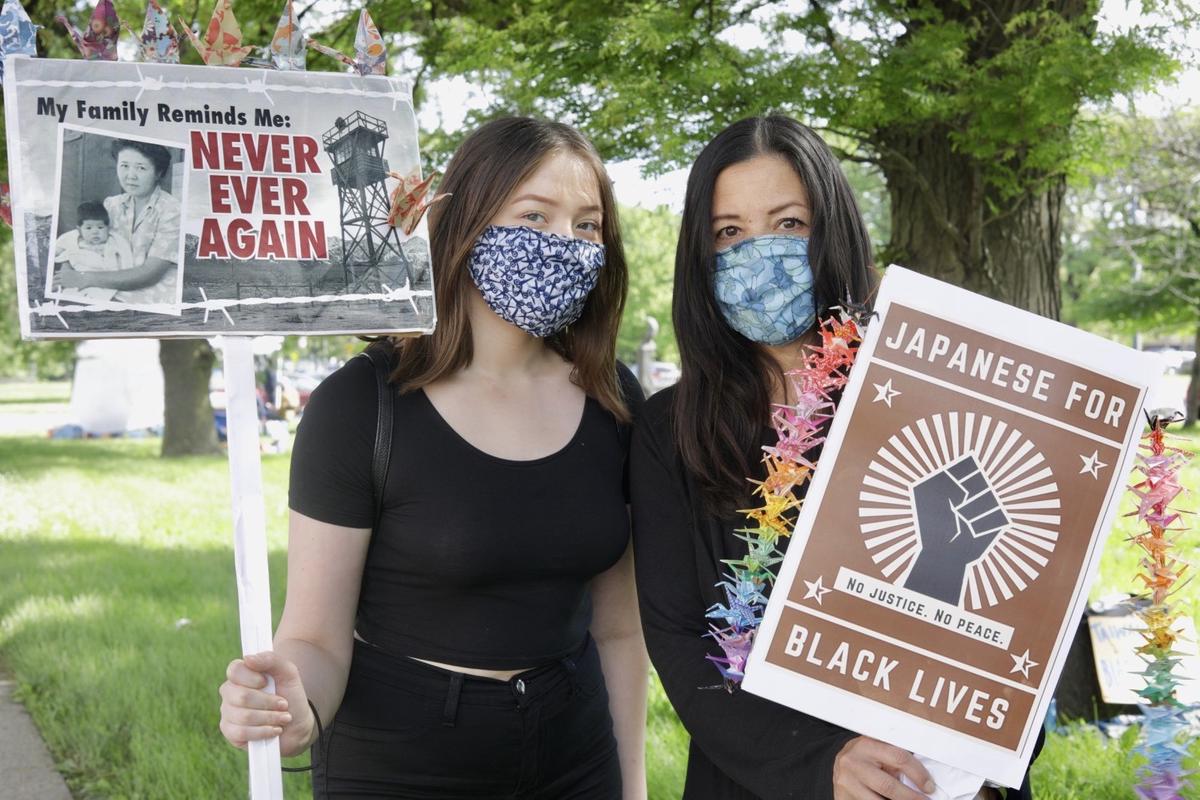
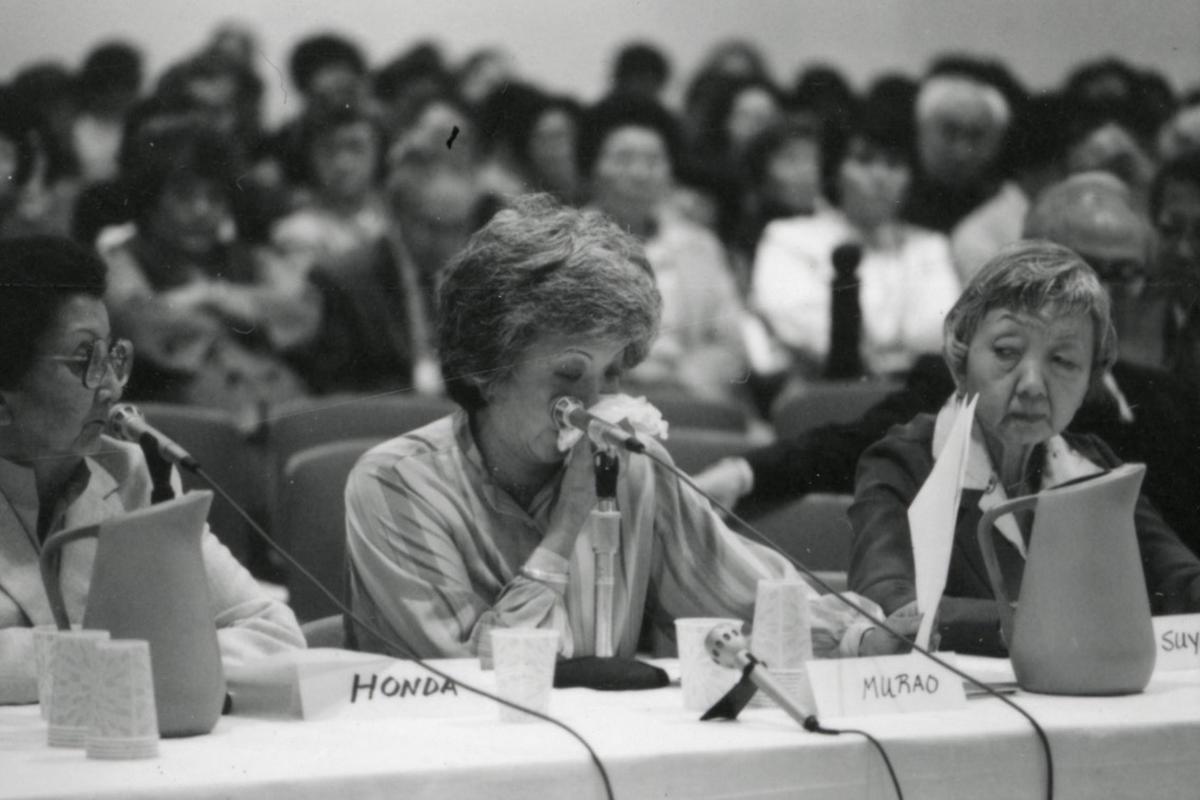
During World War II, the U.S. government incarcerated 120,000 people of Japanese ancestry without due process and without constitutional protection.
Thousands were uprooted from the West Coast and imprisoned in camps located in remote deserts and swamps. Armed guards, watch towers, and barbed wire surrounded them. They lost their homes, years of their lives, and their freedom.
Forty years later, the Japanese American community sought compensation for their immense losses and acknowledgment of their wrongful incarceration. The campaign, known as the redress movement, culminated with the passage of the Civil Liberties Act of 1988.
The federal act granted $20,000 to surviving detainees, a formal presidential apology, and the establishment of a trust fund to support public education projects about the incarceration. It remains one of the few successful pushes for reparations for a historic wrong in U.S. history.
While the fight for redress and reparations was a national movement, Chicago played a key role as the center of organizing efforts in the Midwest. Chicago also served as the site for hearings where more than 100 Midwest Japanese Americans testified about their wartime experiences, many sharing these stories for the first time.
As the U.S. continues to reckon with its long history of racial violence, the Japanese American story holds valuable lessons. In this interactive experience, follow the redress movement in Chicago from the 1970s through today and hear directly from the people who fought — and continue to fight — to ensure history does not repeat itself.